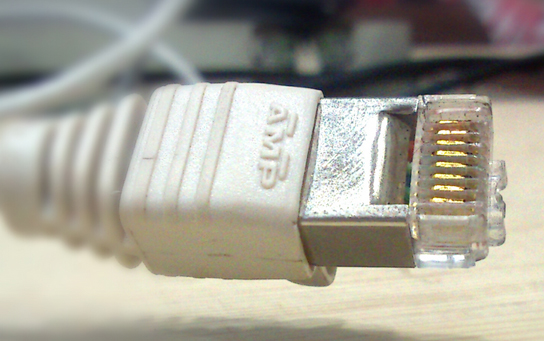Both wired and wireless internet connections have their pros and cons. Your choice between them can significantly impact your gaming experience. Let’s weigh the ups and downs to determine when a cable truly makes a difference.
Latency and Responsiveness
Wired Connections:
Pros: Wired connections, such as Ethernet for internet and USB for peripherals, are renowned for their low latency and high responsiveness. This means minimal delay between your actions and their execution on screen, which is crucial for fast-paced video games like first-person shooters (FPS) and real-time strategy (RTS) games.
Cons: The primary downside is the physical constraint of cables, which can clutter your gaming space and limit your mobility.
Wireless Connections:
Pros: Modern wireless technology has significantly reduced latency issues, making wireless connections almost as responsive as wired ones. For most casual and even some competitive gaming scenarios, the difference in latency is negligible.
Cons: Despite advancements, wireless connections can still suffer from occasional interference and higher latency compared to their wired counterparts. In highly competitive gaming environments, these small delays can be the difference between victory and defeat.
Stability and Reliability
Wired Connections:
Pros: Wired connections offer unparalleled stability. With a direct line from your device to the router or peripheral, you avoid the pitfalls of wireless interference from other devices, walls, or even microwave ovens.
Cons: The setup can be cumbersome, especially in larger spaces where running cables neatly requires effort and planning.
Wireless Connections:
Pros: Wireless offers the convenience of a clutter-free environment and greater flexibility in device placement. Modern wireless standards (like Wi-Fi 6) provide robust connections that are more reliable than previous generations.
Cons: Wireless connections are still more susceptible to interference and signal degradation, particularly in crowded environments or homes with many electronic devices.
Speed and Bandwidth
Wired Connections:
Pros: Ethernet connections typically offer faster speeds and more consistent bandwidth than wireless. This ensures smoother downloads, stable connections, and better overall performance, especially in data-heavy online games.
Cons: The maximum speed is limited by the type of Ethernet cable and your router’s capabilities. Upgrading to the latest standards can be costly.
Wireless Connections:
Pros: Wi-Fi technology has improved dramatically, with Wi-Fi 6 offering speeds that can rival wired connections under optimal conditions. Wireless is more than adequate for most gaming needs and provides the added benefit of mobility.
Cons: Speed can vary significantly based on distance from the router and environmental factors. Thick walls and electronic interference can reduce speed and increase latency.
Convenience and Flexibility
Wired Connections:
Pros: Once set up, wired connections require minimal maintenance and provide a stable, high-performance connection. They are ideal for dedicated gaming setups.
Cons: Lack of flexibility can be a major drawback. Moving devices or rearranging your setup involves dealing with a mess of cables.
Wireless Connections:
Pros: Wireless setups are easy to manage, with no cables to worry about. This is especially advantageous for laptop gaming or when using portable gaming devices.
Cons: The initial setup may involve finding the optimal placement for the router and devices to ensure the best signal strength.
The choice between wired and wireless connections for gaming boils down to your priorities and gaming environment. If you’re a competitive gamer seeking the lowest possible latency and highest stability, wired connections are the clear winner. They provide consistent performance and minimal delay, essential for high-stakes gaming.
On the other hand, if you value convenience, flexibility, and a tidy setup, modern wireless connections can meet most gaming needs. With the advancements in wireless technology, the performance gap has narrowed considerably, making wireless a viable option for many gamers.
Ultimately, understanding the strengths and limitations of each option will help you make an informed decision that aligns with your gaming habits and setup preferences.



